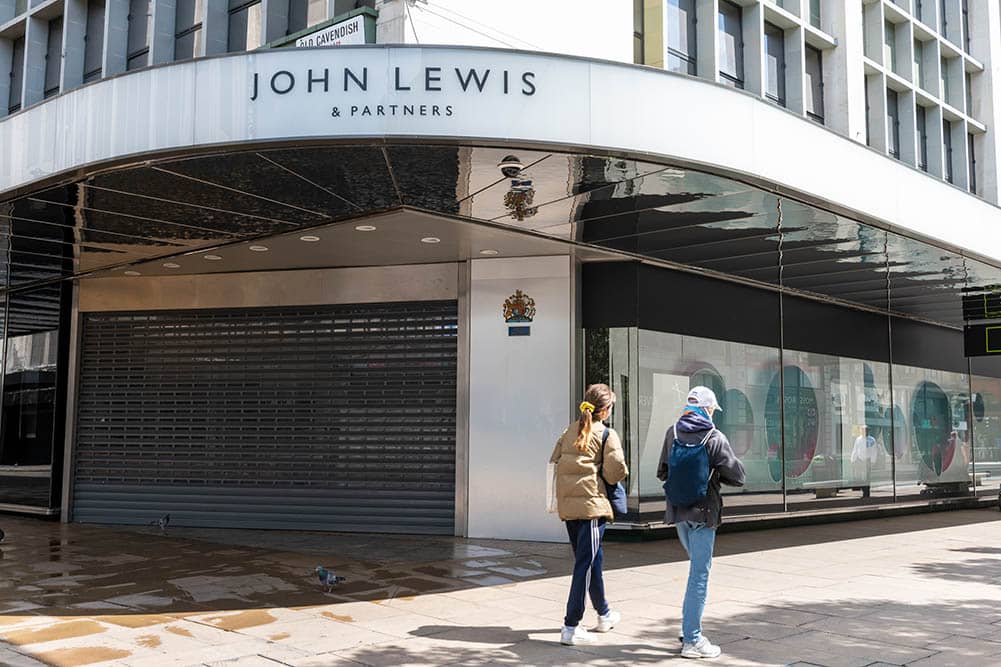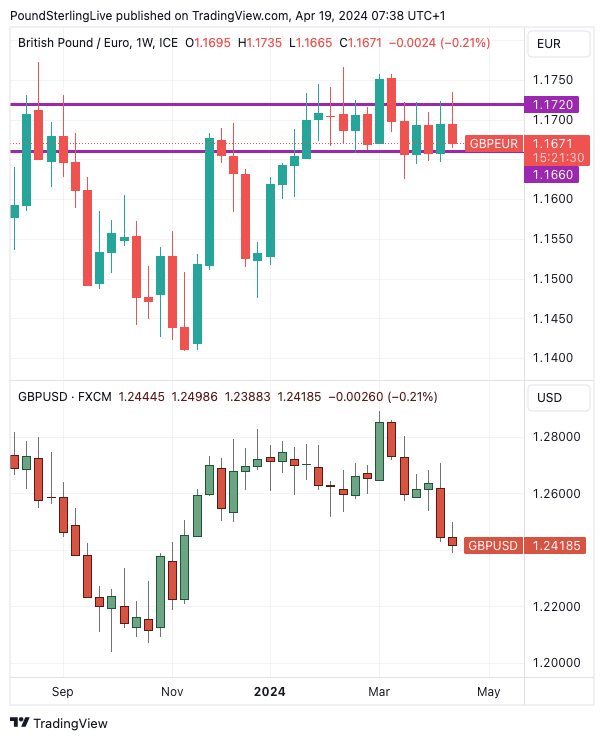Pound Sterling: Retail Sales Miss Cements a Weekly Loss against Euro and Dollar
- Written by: Gary Howes

Image © Adobe Images
We saw the British Pound fall in the minutes after the ONS announced UK retail sales showed no growth in March 2024 (0% month-on-month). Losses would have been greater were it not for a positive revision to 0.1% from 0% for February's release.
The market had been expecting solid growth at 0.3% m/m and the disappointment was reflected in a dip in the Pound to Euro exchange rate to 1.1668 from 1.1678. The Pound to Dollar exchange rate fell to 1.2405 from 1.2414.
The ONS says hardware stores, furniture shops, petrol stations and clothing stores all reported a rise in sales. However, gains were offset by falling food sales and activity in department stores. Retailers in department stores reported to the ONS that high prices had impacted trading.
"Department stores remain an area of particular weakness, not good news for John Lewis which announced it would not be paying its regular staff bonus for the second year in a row during the month," says Nicholas Hyett, Investment Manager at Wealth Club.
Compare Currency Exchange Rates
Find out how much you could save on your international transfer
Estimated saving compared to high street banks:
£2,500.00
Free • No obligation • Takes 2 minutes
"Bad weather could also have dampened consumer demand and retailers will likely be hopeful the warmer weather and upcoming May bank holidays will boost momentum," says Gizem Günday, Partner at McKinsey & Company. More broadly, the surge in inflation continues to leave its mark: retail sale volumes are still 1.3% lower on an annual basis than pre-pandemic.
The Pound looks set to remain under pressure against the Euro and Dollar and is registering another weekly loss against both currencies. These retail figures will only add to the sombre mood surrounding the currency.
This week's losses for Sterling come despite above-consensus wage data and inflation prints. If a beat on expectations for the two marquee events in the Pound's monthly calendar can't stimulate the currency, perhaps no data will.
Above: GBP/EUR (top) and GBP/USD at weekly intervals. Track GBP with your own custom rate alerts. Set Up Here
The currency's negative reaction to the above-consensus data suggests that in the market's eyes, the Pound is a sell, whatever the weather.
Bank of England Governor Andrew Bailey's midweek comments have certainly played a part in GBP's underperformance. Bailey told fellow central bankers in Washington that there was nothing in the latest inflation data to cause concern. Markets interpreted this as a clear signal he is going to push through an interest rate cut in June.
A June rate cut would come alongside a cut at the ECB, which should keep the Pound-Euro exchange rate in its existing 2024 range for the foreseeable future.
But a June cut would come well ahead of cuts at the U.S. Federal Reserve, RBA and RBNZ, which could result in GBP weakness against the USD, AUD and NZD.
"BoE Governor Bailey has argued strongly this week that the MPC can start cuts soon. We expect the first BoE rate cut in June," says Rob Wood, UK Economist at Pantheon Macroeconomics.





